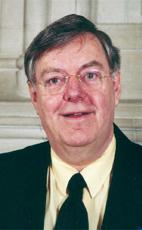Mr. Speaker, I will begin, if I may, by reading my motion:
That the House acknowledge that Quebec constitutes a nation, and accordingly, as it is not a signatory to the social union framework agreement of 1999, the said nation of Quebec has the right to opt out of any federal initiative encroaching upon Quebec jurisdictions, with full financial compensation.
Sometimes things happen serendipitously. This first hour of resumed debate this Monday morning coincides with the first hour following the 10th anniversary of the election of the Bloc Quebecois with an impressive 54 seats, on October 25, 1993. There is some symbolism at work here. First, the timing of the debate, and second that it addressed the constitutional debate and the place or the future of Quebec within the federation. These dovetail very well with the history-making—so very history-making—mission of the Bloc Quebecois. This motion is presented in conformity and harmony with that mission.
This is a history-making motion because it addresses fundamental issues, the very basic questions we of the Bloc Quebecois should address, do in fact address, which keep us at a distance from the day to day upheavals going on. It takes us back to the source. It is a call for reflection, a call to Canadians as well as Quebeckers to reflect on what the future of Quebec is within this federation, whether we should remain part of it.
I would like to draw hon. members' attention to the underlying meaning of the vote to be held on Wednesday, October 29. If the members of this House, whether from Canada or Quebec, vote in favour of this motion, we need to be aware that the motion means that this House would be recognizing a true special status for Quebec, that this House would be recognizing special and specific powers, special responsibilities, special sources of funding.
If this House voted in favour of this motion, it would be acknowledging the existence of the Quebec nation and consequently its the right to opt out, and also the fact that it was not a signatory of two landmark documents in the evolution of Canada, in 1982 and 1999.
Members should be aware of what is going on here, unless this is only a hoax, a huge travesty not worth the paper on which the Hansard of the House of Commons is published.
Therefore, members from the rest of Canada should think twice before voting yes. Let us not forget what happened in 1992, during the referendum on the Charlottetown accord. Politicians supported the agreement, but on the morning of the referendum, there was a spontaneous and unorganized public uproar and Canadians decided to vote no, because Quebec would have gained too much from the agreement. At the same time, Quebecers had also decided to turn down the proposed agreement, because it did not grant Quebec enough new powers.
That is the famous dead end in Canadian federalism, the two solitudes as described in 1963 in the Laurendeau-Dunton report. In my mind, the situation in Quebec has only gotten worse since then.
If this motion is defeated, it means that Quebec is not recognized as a nation. It would be seen as a province like any other, a region, a cultural component, an ethnic and cultural community within the Canadian mosaic, just another component, as the heritage minister would have it.
Defeating the motion would be saying no to one of the two founding nations of Canada, to special status, to a real distinct society, to specific powers for Quebec, to national recognition for Quebec, to international recognition for Quebec, which has established ties with Africa and Latin America thanks to its Latin and French roots.
It would be saying no to a nation that ranks second in the Francophonie, sixth in the two Americas and fifteenth as a world economic power.
As Pierre Bourgault so eloquently put it “We do not want to be a province like any other, we want to be a country like any other”.

